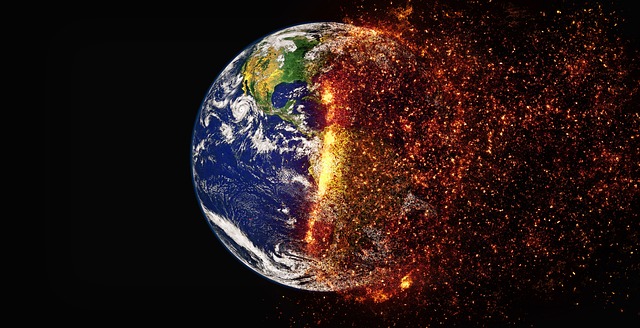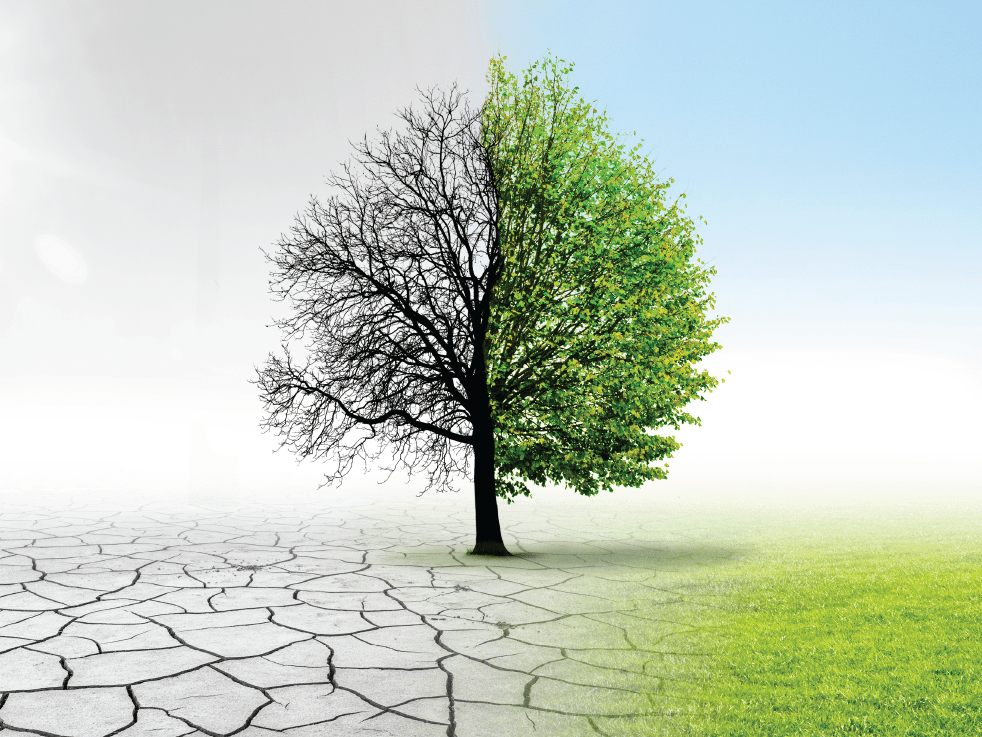
One definition of climate changes is an increase in long-term average weather conditions as a result of human activities. These changes can be caused by a variety of factors, including the emission of greenhouse gasses. Both the economy and our health can be affected. It is a worldwide issue that will impact daily life. All citizens can respond by understanding the science behind climate changes.
Many scientists are researching global warming. These scientists include those who work on climate modeling, which predicts how temperatures will change over time. Some studies predict changes in precipitation, snow and ice. Scientists are also finding evidence that ocean acidification as well as sea level rising are real.

Extreme weather phenomena are becoming more frequent as a result global warming. They can be more intense, as well. Industrialization and fossil fuel burning are increasing the carbon levels in the atmosphere.
Additional factors that contribute to climate changes include short-term temperatures variability, long term temperature variability, ocean acidification, and greenhouse gases. However, the main cause of climate change is human activity.
Scientists are increasingly convinced that the primary cause of climate change is the burning of fossil fuels. The industrialized countries have been responsible for almost all global annual greenhouse gas (GHG), emissions in recent years. While most industrialized nations have set reduction targets for themselves, many are not meeting them. Negotiations are underway to set more precise emission reduction goals for industrialized nations.
Interpreters who are involved in climate change must be able understand all the perspectives, cultural influences, or scientific explanations. For example, if a climate scientist is discussing climate change in terms of the human population, the interpreter will need to know about the economic, social, and political dimensions of the subject. A person must be informed about the latest information.

According to the United States Geological Survey global warming refers to an increase in global average temperatures. Climate models have predicted that there could be changes in the snow and ice. Other changes can also be caused by climate change to ecosystems and biodiversity. Economic challenges will also be caused by climate change.
In 1992, UNFCCC was established. The Rio Earth Summit had industrialized nations commit to stabilizing GHG emissions until 2000. However, this goal will not be reached. This is why seven of the largest economies in the world called upon the UN to set up an expert group to investigate the matter.
The IPCC (International Panel on Climate Change), a research organisation dedicated to studying climate change, is one example. This body releases reports on climate change science. The group has published dozens upon reports since its 1990 release. Each report is supported scientifically by experts from all over the globe.
It is impossible to stop the impacts of climate change. However, adaptation seeks ways to minimize them. Technology, pollution mitigation, and conservation of natural resources can all be used to adapt.
FAQ
What are the roles of individuals and communities when it comes to addressing climate change?
Climate change is one of the biggest contemporary challenges we face today. It affects all of us and requires our collective attention as well as individual actions to make a real difference.
Individuals have an essential role to play in addressing climate changes and reducing their effects. It is possible to make small changes in your everyday life such as reducing waste or consuming more conscious, switching to vegetarianism, eating less meat, taking public transportation more often, and using more sustainable fabrics for clothing and home decor. Additionally, they can take part in political advocacy and promote initiatives in their communities that foster sustainability.
It is important that communities are involved in the larger climate change effort. They can adopt policies that reduce emissions. These include reformulating energy models that are based on renewable sources, encouraging efficient infrastructure for bicycle or electric transport, reducing deforestation and encouraging composting systems for waste disposal. This mission requires collaboration between communities in different cities and countries.
Furthermore, it is important to start education in the early stages and continue learning throughout your life. This will allow individuals to be more aware and connected to other societies, even if they are not located near us.
Ultimately employers have a major responsibility when it comes to fighting climate change: introducing corporate practices focused on sustainability and opting for green alternatives whenever possible will undoubtedly yield positive results both economically and sociologically speaking.
Thus, individual actions as well as community policies combined with business transformation will greatly contribute to the creation of solutions for global warming and collectively protecting humanity from longer-term harmful effects from climate change.
What does climate change mean for the oceans and marine life of the world?
What is the effect of climate change upon the world's oceans?
Since its inception, climate change has had a significant impact on the oceans and marine life of the world. Constant oceanic heat from the depletion in the ozone layer causes major disruptions in marine ecosystems. This leads to coral bleaching, and decreases in species.
Climate change also causes unpredictable weather conditions and stronger storms. These extreme surges can be deadly for coastal areas. Furthermore, changes in temperature may reduce oxygen levels in water systems resulting in "dead zones" where abundant marine life becomes sparse.
Ocean acidification is also caused by carbon dioxide that is released into the air and then accumulates in the seas. Ocean acidification increases pH, which can disrupt the essential functions of animals that are unable to adapt, such as crabs, oysters, clams and crabs.
Higher temperatures can also cause changes in natural habitats. They may shrink or change their geographical location, making it unhabitable for species that depend on them. An increase in ocean pressure can cause a drastic imbalance between predators & prey and lead to the extinction of many species.
All ecosystems are affected by climate change. This can be directly or indirectly via evaporation, water volume reductions or sharp temperature shifts. These changes could have a devastating effect on sustainable development of marine activities and fisheries. Overall climate change continues one by one wiping out entire species from our planet transforming future lives on land but most importantly deep below the surface of our oceans.
How does climate change politics impact global efforts?
Climate change is a controversial issue that has caused a lot of division between nations, governments and individuals. Politicians of many actors influence the implementation of actions to address climate change. It has been difficult to reach a consensus on the global effort to address this urgent environmental problem.
The vast majority of scientific opinion agrees that human-generated climate change is real and requires urgent action. These issues are often dominated by politics, which can hinder global cooperation that is necessary to implement sustainable energy practices, protect natural habitats, research viable technological solutions, as well as other climate change interventions.
Many governments around the globe want to protect business interests and enforce policies that restrict business activities. This often clashes with regulations that experts recommend for effectively addressing climate change. It is very difficult for any one state or group of countries to effectively address climate change without strong commitments from all participants and broad-scale international action.
Different power dynamics can make it difficult to achieve full consensus on the best ways to address climate change. Countries with greater economic power are more likely to elect their own representatives to the international bodies responsible for negotiations on the environment. This can cause lopsided discussions about the interests of each country versus the collective interest all parties. In addition, potential side effects from implementing radical changes such as geoengineering have been debated heavily at both national and international levels.
In the same way, grassroots movements are fighting powerful opponents at the grassroots level. These include corporate ownerships and well-funded lobbyists looking to retain politically favorable positions.
Properly distributing resources allocated towards any intervention program while being mindful of political divisions between nations will be critical if any coordinated effort aimed at mitigating our current environmental crisis is going successfully to come to fruition.
How can the impact of climate change be reduced or mitigated?
There are many steps that can be taken in order to reduce and mitigate climate change's effects. There are many ways to reduce greenhouse gas emissions. These include using more sustainable energy and alternative sources of power. Protecting forests and wilderness habitats. Investing in sustainable transport systems. Strengthening early warning systems for natural disasters. Creating a research program about the impacts of climate change on biodiversity. Investing in green technologies like solar panels and wind turbines. Developing sustainable consumption habits and implementing appropriate environmental regulations in all areas of society. It is important to raise awareness of climate change in order to encourage people and make them feel responsible for their actions.
What are the implications of climate change for the environment and society?
Climate Change has wide-ranging effects on the environment as well society. Climate change will have many impacts on the environment. These changes can have serious implications for human populations, creating instability in communities, intensifying poverty and insect-borne diseases, altering human migration patterns, and destroying vital habitats.
Already, climate disruption is already having profound impacts on the environment and society around the world. As global temperatures rise, it is likely that this trend will continue in the near future.
Ocean levels rising due to melting ice caps is one of the most pervasive effects of climate change worldwide. This leads to shoreline erosion at many coasts as well as an increased risk for flooding for coastal communities. Also, saltwater intrusion occurs, which negatively affects freshwater supplies in coastal areas in many countries.
Climate change is causing extreme weather events like heatwaves, droughts and other severe weather to occur in many countries. These events lead to massive destruction of homes, businesses, and even the loss of whole communities. Extreme storms can also cause flooding and landslides, which increase the damage to infrastructure like roads and railways.
Also, wildfires due to climate change are occurring more often than ever. These fires can cause severe damage to habitats and the lives of people living close by.
Many people are forced to flee their homes due to drastic changes in their living conditions.
People with respiratory diseases such as asthma are particularly vulnerable to dust storms from increased aridity. In addition, pest infestations are expected to increase significantly linked with higher temperature extremes - a phenomenon known as 'greenhouse bug' - leading to further damage to agricultural production that further affects global food insecurity numbers as fewer crops become available at worse nutritional qualities potentially bringing additional hardships upon marginalized populations already barely able make ends meet otherwise.
Statistics
- According to the 2014 report on Climate Change Impacts, Adaptation, and Vulnerability (page 8) from the United Nations Intergovernmental Panel on Climate Change, governments at various levels are also getting better at adaptation. (climate.nasa.gov)
- features Earth's average surface temperature in 2022 tied with 2015 as the fifth warmest on record, according to an analysis by NASA. (climate.nasa.gov)
- features Earth's average surface temperature in 2022 tied with 2015 as the fifth warmest on record, according to an analysis by NASA. (climate.nasa.gov)
- The 10 countries with the largest emissions contribute 68 percent. (un.org)
- This source accounts for about 10% of all the water that enters this highly productive farmland, including rivers and rain. (climate.nasa.gov)
External Links
How To
How to Educate your Community about Climate Change and Mobilize Action
Many forms of climate education are available, including interactive educational tools and online resources, as well as classroom activities, simulations, or experiential learning programs. The following key elements are essential for effective climate change education
-
The goal is to provide practical knowledge and skills for the people who are interested in this subject.
-
Demonstrating that people can make a real difference.
-
Participating in an open dialogue regarding potential solutions
-
Inspiration through shared experiences that inspire action
Teachers can help communities to reduce their environmental footprints by offering comprehensive lessons in climate change for both adults and students.
A unique way to engage people in meaningful dialog is to link scientific research with real world examples. Participants can also witness positive outcomes from case studies and best practice, which can be used to inspire innovation and replicateable measures in their communities.
Participating in action-oriented activities within educational curriculums gives participants the mental tools they need to create campaigns, form petitions or take local actions. This empowers them to become agents for social and/or political transformation or sustainability improvement. In addition, individual agency emphasizes the importance of participating in reducing emissions. It also shows participants' collective contributions to a greater outcome. Additionally, involving stakeholders early on in policy-making efforts encourages active engagement in decision-making processes allowing them to become involved at all stages of the process which could result in more equitable outcomes for all parties affected by the policy design decisions. If we work together to improve public understanding and to take the appropriate action to reduce greenhouse gases emissions, then we might be in a position to create an environment that allows us to address urgent issues with our attention being focused where it is most necessary. In this way, we can all help to achieve our collective goals.